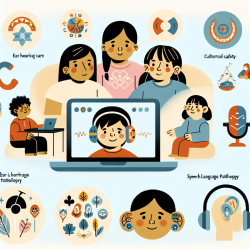The COVID-19 pandemic has brought about unprecedented challenges in healthcare, particularly affecting vulnerable populations such as the elderly. One area that has seen significant ethical debate is Medical Assistance in Dying (MAiD). This blog delves into the ethical concerns surrounding MAiD decisions among elderly patients during the pandemic and offers insights for practitioners to enhance their understanding and approach.
The Impact of Pandemic Pressures on MAiD Decisions
The pandemic has introduced new pressures that complicate the decision-making process for MAiD. Social isolation, overwhelmed healthcare systems, and heightened mental health issues are factors that can undermine patient autonomy. Elderly individuals, often isolated from their support networks, may experience a decline in mental health, leading to increased requests for MAiD.
Practitioners must recognize these pressures and consider their impact on patient autonomy. It is crucial to ensure that decisions are made without undue influence and that patients are fully informed about their options. The ethical principle of autonomy should be respected while balancing beneficence and non-maleficence.
Navigating Ethical Considerations
The principle of autonomy is central to bioethics and must be upheld in MAiD-related decisions. However, the pandemic has highlighted the complexity of truly autonomous decision-making. Practitioners should be aware of factors such as social support availability, mental health status, and resource access that may influence a patient's decision.
- Social Support: The lack of social support due to pandemic restrictions can lead to loneliness and depression among the elderly. Practitioners should involve family members or other support systems in end-of-life discussions to provide a holistic view of the patient's situation.
- Mental Health: Declining mental health can cloud judgment. Practitioners should assess mental health thoroughly and consider interventions that could improve outlook before proceeding with MAiD.
- Resource Access: Limited access to healthcare resources during the pandemic may pressure patients into choosing MAiD. Practitioners should advocate for equitable resource distribution to ensure all patients receive appropriate care.
The Role of Healthcare Practitioners
Healthcare practitioners play a pivotal role in navigating the ethical landscape of MAiD. They must balance their duty to respect patient autonomy with their own moral beliefs and professional obligations. It is essential for practitioners to engage in open dialogues with patients about their wishes while providing comprehensive information about all available options.
Practitioners should also stay informed about evolving legislation and ethical guidelines related to MAiD. Continuous education through conferences, publications, and webinars can enhance their understanding and ability to address these complex issues effectively.
Encouraging Further Research
The ethical challenges surrounding MAiD are far from settled. As new contexts arise, further research is needed to understand the full impact of pandemic-induced pressures on MAiD decisions. Practitioners are encouraged to contribute to this discourse by engaging in research initiatives or collaborating with academic institutions.
The insights gained from ongoing research will help shape future policies and practices that protect patient autonomy while ensuring compassionate care for those considering MAiD.
To read the original research paper, please follow this link: The Ethics of Dying: Deciphering Pandemic-Resultant Pressures That Influence Elderly Patients’ Medical Assistance in Dying (MAiD) Decisions.










